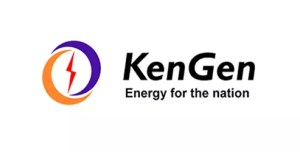
Kenyan energy company KenGen has issued a general invite for Bitcoin miners looking to take advantage of its renewable energy facility in Nairobi.

KenGen claims that renewable energy accounts for 86 percent of its energy, the majority of which is geothermal heat from pockets of ground source heat in the Great Rift Valley.
KenGen has space at its new industrial park in Olkaria, near its flagship geothermal power station, that might be rented to Bitcoin miners, according to local news outlet The Standard.
Peketsa Mwangi, KenGen’s interim director of geothermal development, stated that his business was eager to welcome the miners to Kenya:
“We’ll have them here because we have the space and the power is near, which helps with stability.”
Despite his enthusiasm, no stories of miners wishing to relocate to Kenya have surfaced.
According to Kenyan financial news site Capital FM, KenGen is currently operating at a maximum generating capacity of 863 MW following the installation of a new geothermal power plant in April.
KenGen may be able to accomplish multiple aims at once by recruiting miners to the country. It has the potential to improve miners’ environmental sustainability, which has come under fire around the world.
It could also fuel demand for greater development in KenGen’s power infrastructure in order to boost overall supply and lower costs.
Energy in Kenya
According to Statista, Kenya has the world’s 12th most expensive power, with one-kilowatt hour (KWh) costing around $0.22. The country’s high electricity costs could be related to its low electrification rate. According to WorldBank, only over 70% of the population has access to the centralized grid by 2020.
Kenya’s high cost of connecting to the grid, according to energy grid tracker Energypedia, is a “major impediment” to its expansion.
The Kenyan government might potentially benefit from increased money through miner fees and even taxes. Kazakhstan’s government, for example, expects to receive up to $1.5 billion from miners over the following five years, despite only receiving $1.5 million in Q1 2022.
Because of its huge frequency of peer-to-peer transactions, Kenya has a particularly high rate of crypto adoption.
Since last year, the Central Bank of Kenya (CBK) has been looking into the possibility of a central bank digital currency (CBDC). In February, CBK listed lesser fees and faster transfer rates as advantages of using a CBDC.
